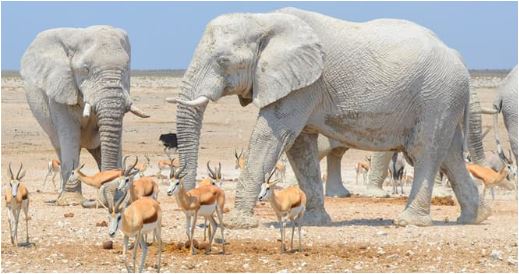Thailand, often referred to as the “Land of White Elephants,” has a rich cultural history and a deep-rooted connection to elephants. This nickname holds symbolic and historical significance that has shaped the country’s identity. Here’s an article explaining why Thailand is called the “Land of White Elephants.”
The white elephant, a revered and rare animal, has long been associated with Thailand’s history, mythology, and royal traditions. In Thai culture, the white elephant is considered a sacred and auspicious creature, symbolizing power, wisdom, and good fortune. Its association with Thailand dates back centuries, and the country’s affinity for elephants has made it a significant part of Thai heritage.

One reason behind Thailand’s association with white elephants lies in the ancient belief that a white elephant is a divine and royal creature. In traditional Thai society, owning a white elephant was a symbol of great prestige and wealth. White elephants were reserved for Thai monarchs, and possessing one was a demonstration of the ruler’s power and divine right to rule. These elephants were highly revered and treated with the utmost care and respect.
However, the term “white elephant” can be misleading, as it doesn’t necessarily refer to the animal’s color. In fact, white elephants can range in color from light gray to dark brown, with patches of pinkish or lighter skin. The term “white elephant” is used metaphorically to represent something valuable, rare, and unique.
The association between Thailand and white elephants extends beyond symbolism. Historically, the white elephant played a crucial role in Thai diplomacy. Kings of Thailand would present white elephants as gifts to neighboring countries and other monarchs, thereby fostering diplomatic relationships and demonstrating their kingdom’s prosperity and prestige.
The reverence for elephants in Thai culture extends beyond their symbolic and historical significance. Elephants hold a special place in the hearts of the Thai people and are considered national treasures. Thailand is home to both wild and domesticated elephants, and efforts have been made to protect and preserve these magnificent creatures.
Despite the declining population of elephants due to habitat loss and illegal activities, Thailand has taken steps to conserve and safeguard its elephant population. There are several elephant sanctuaries and conservation projects across the country, promoting ethical elephant tourism and advocating for the well-being and welfare of these gentle giants.
In conclusion, Thailand’s nickname as the “Land of White Elephants” is deeply rooted in its cultural, historical, and mythological traditions. The white elephant symbolizes power, prestige, and divine association in Thai society. This connection between Thailand and white elephants showcases the country’s rich heritage and reverence for these majestic creatures. While the term may not reflect the animal’s actual color, it represents something rare and valuable, capturing the essence of Thailand’s cultural identity and its enduring love for elephants.




